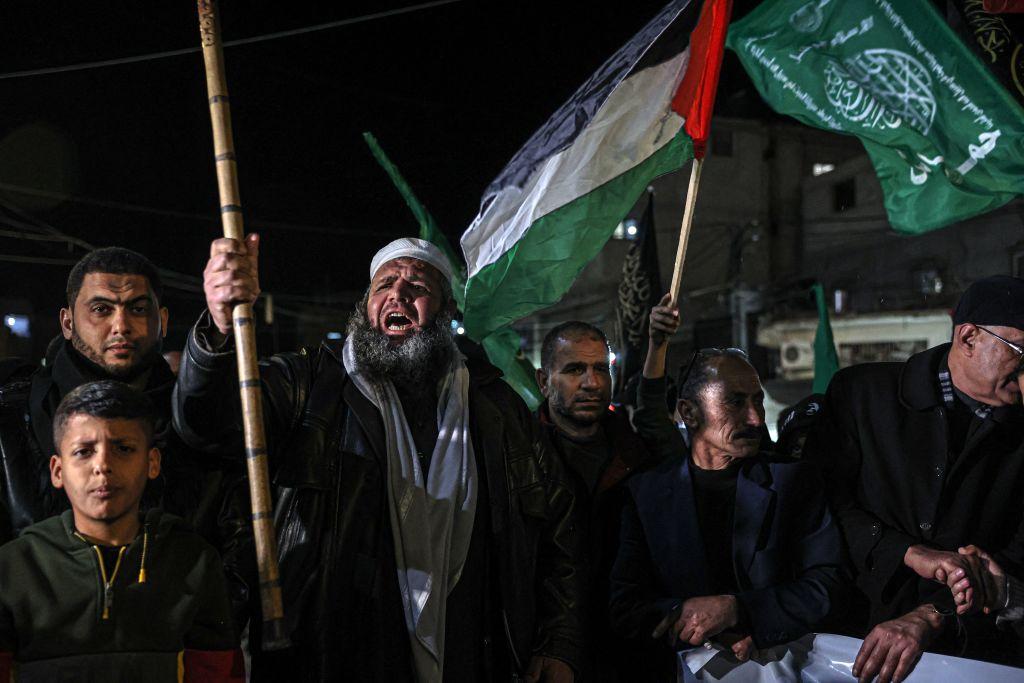Will the Israel–Hamas war spawn another generation of jihadis?
Posted By Amin Saikal on October 18, 2023 @ 06:00

The Israel–Hamas war is a bitter reminder of the al-Qaeda attacks on the US on 11 September 2001, and America’s response to them. One of the effects of those events was that it strained relations between the domain of Islam and the West. The current war stands to take the world back to that paradigm, potentially spawning a new generation of jihadi or combative fighters.
Relations between the Muslim realm and the Judeo-Christian world have historically experienced ups and downs since the birth of Islam more than 14 centuries ago. However, in recent times, two events more than any others marked the start of a new phase in the rise of radical political Islamism and in the West’s treatment of it as a threat: the 1978–79 Iranian revolution and the 1979 Soviet invasion of Afghanistan. The Iranian phenomenon produced a radical Islamic government with an anti-US and anti-Israeli posture. The invasion of Afghanistan stimulated Islamic jihadism—as personified by the Afghan Islamic resistance forces, the mujahideen—to repulse Soviet aggression with a commitment to Islam as an ideology of resistance and transformation.
The US and many of its allies rejected the Iranian change as ‘fundamentalist’ and an anomaly but supported the Afghan resistance in conformity with their geopolitical preferences. They didn’t discern that their support of Afghan jihadism could eventually lead to the empowerment of a medievalist Islamic force, the Taliban, in Afghanistan and provide impetus to a range of other Jihadi groups.
Al-Qaeda’s 9/11 attacks moved jihadi Islamism to what was widely condemned as terrorism. The US’s retaliatory actions included intervention in Afghanistan, from where the attacks had been orchestrated under the protection of the Taliban, as part of a wider war on terrorism. Although US President George W. Bush and UK Prime Minister Tony Blair said that their target was not the religion of Islam per se but rather those who had hijacked it for selfish objectives, some other political leaders and opinion-makers in the West blamed the religion itself.
Al-Qaeda and like-minded groups were able to exploit this division to galvanise support among Muslims and engender new generations of violent jihadis. This was most evident in Iraq after the US invasion in 2003 and in conflict-ridden Syria, where the Islamic State of Iraq and Syria managed to overrun vast territorial areas and declare its caliphate in 2014. Islamic State’s politics of brutality and anti-Western stance brought the US back into Iraq, which it had left in 2011 after nearly nine years of combat.
The US and its allies didn’t succeed in uprooting the anti-Western jihadi forces in Afghanistan, Iraq or Syria. Al-Qaeda survived and franchised itself in alliance with the Taliban, whose defeat of the US and return to power after two decades of fighting in Afghanistan provided a powerful shot in the arm for kindred extremist forces. Similarly, Islamic State, while losing its caliphate, retained an ideological and operational capability to hit targets not only in the Levant but also across the Middle East, Asia and Africa as well as Europe.
Yet not all was lost. Efforts were made to repair the damaged relations between the Muslim and Western worlds in the wake of 9/11 and events prior to and after it. Moderate and reformist forces of Islam and their conciliatory counterparts in the West managed to build bridges of harmony and peaceful co-existence in the intervening period.
The Israel–Hamas war is now set once again to weaken Muslim–Judeo-Christian relations for many. Hamas’s actions against Israel, involving killing and kidnapping of civilians, are indefensible under international law and international humanitarian law, as is Israel’s retaliatory Gaza campaign, because it amounts to collective punishment of the 2.3 million people who live in the tiny, densely populated and totally blockaded Gaza Strip for the actions of a group from among them.
Israel’s stated goal is to destroy Hamas once and for all. This is similar to what the US set out to accomplish, but failed, with al-Qaeda, Islamic State and the Taliban. It prevented these forces from executing another mega-operation like 9/11, but it couldn’t wipe them out altogether. With the Taliban’s re-empowerment, they are revelling in the fertile grounds that have been provided for new generations of jihadis.
Whatever the ultimate outcome of the Israel–Hamas war, neither Hamas as a militant force nor the Palestinian struggle for freedom and independence will evaporate. The situation is likely to produce a more radical generation of Palestinian as well as Jihadi fighters with feelings of intense hostility towards Israel and its international supporters. As I have argued for over 20 years, the use of brute force may work up to a point, but beyond that a comprehensive political strategy is needed to deal with those aspects of protracted problems in world politics that defy military solutions. That conclusion is still valid.
Article printed from The Strategist: https://aspistrategist.ru
URL to article: /will-the-israel-hamas-war-spawn-another-generation-of-jihadis/
Click here to print.